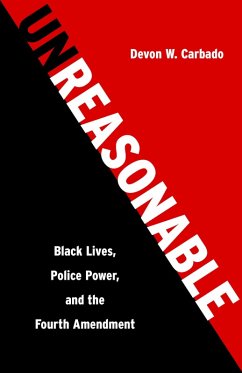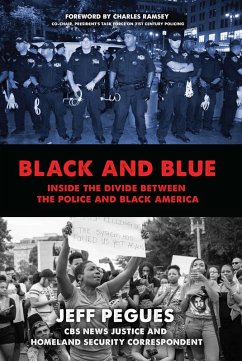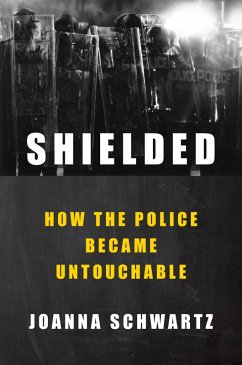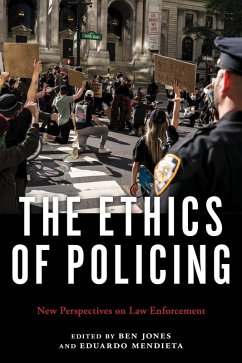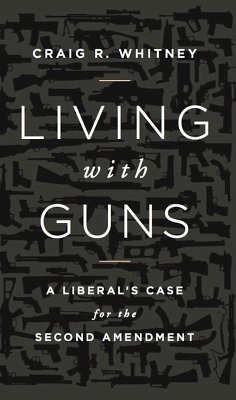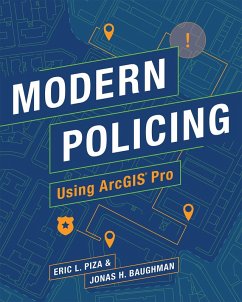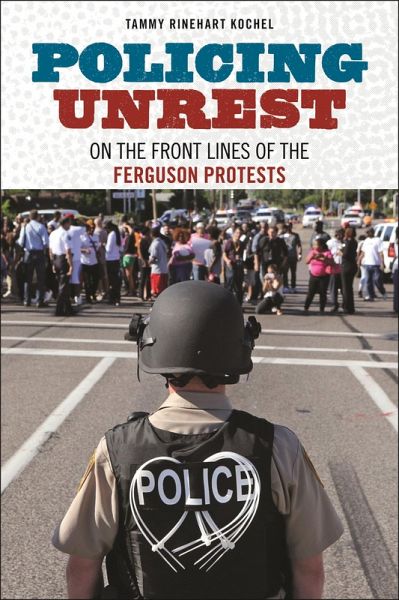
Policing Unrest (eBook, ePUB)
On the Front Lines of the Ferguson Protests
Versandkostenfrei!
Sofort per Download lieferbar
23,95 €
inkl. MwSt.
Weitere Ausgaben:

PAYBACK Punkte
12 °P sammeln!
An up-close account of policing during the Ferguson protests, providing insights from both police officers and members of the communityPolicing Unrest presents the frontline experiences of police officers during the intense three weeks of protest, vigils, looting, violence, and large civil demonstrations in and around Ferguson, Missouri, following the fatal shooting of Michael Brown by a police officer. Looking closely at the lived experiences of police officers and community residents, Tammy Rinehart Kochel raises important questions about police-community relations and the role of police as ...
An up-close account of policing during the Ferguson protests, providing insights from both police officers and members of the community
Policing Unrest presents the frontline experiences of police officers during the intense three weeks of protest, vigils, looting, violence, and large civil demonstrations in and around Ferguson, Missouri, following the fatal shooting of Michael Brown by a police officer. Looking closely at the lived experiences of police officers and community residents, Tammy Rinehart Kochel raises important questions about police-community relations and the role of police as peacekeepers in support of social justice.
Drawing on interviews with dozens of police personnel who policed the protests, Kochel offers insight into their shared experiences and provides compelling personal accounts of how they performed their jobs during the protest. The book covers a range of topics such as police-community relationships and community policing principles; how factors such as police subculture and organizational culture stacked up against social identity during this crisis; the role of an officer's characteristics, especially an officer's race, play in an officer's self-legitimacy; and the implications for police recruitment and training. Kochel's unique access allowed her to provide a balanced perspective on police officers' cynicism and public protests against police that were rampant in the year following Ferguson against the need to restore police-community relations and police legitimacy through increased transparency, accountability, and procedural justice. Policing Unrest explains how the Ferguson protests ushered in an era of police reform and reveals what it is like being a police officer facing public unrest, particularly in the wake of widely publicized incidents of police brutality around the country.
Policing Unrest presents the frontline experiences of police officers during the intense three weeks of protest, vigils, looting, violence, and large civil demonstrations in and around Ferguson, Missouri, following the fatal shooting of Michael Brown by a police officer. Looking closely at the lived experiences of police officers and community residents, Tammy Rinehart Kochel raises important questions about police-community relations and the role of police as peacekeepers in support of social justice.
Drawing on interviews with dozens of police personnel who policed the protests, Kochel offers insight into their shared experiences and provides compelling personal accounts of how they performed their jobs during the protest. The book covers a range of topics such as police-community relationships and community policing principles; how factors such as police subculture and organizational culture stacked up against social identity during this crisis; the role of an officer's characteristics, especially an officer's race, play in an officer's self-legitimacy; and the implications for police recruitment and training. Kochel's unique access allowed her to provide a balanced perspective on police officers' cynicism and public protests against police that were rampant in the year following Ferguson against the need to restore police-community relations and police legitimacy through increased transparency, accountability, and procedural justice. Policing Unrest explains how the Ferguson protests ushered in an era of police reform and reveals what it is like being a police officer facing public unrest, particularly in the wake of widely publicized incidents of police brutality around the country.
Dieser Download kann aus rechtlichen Gründen nur mit Rechnungsadresse in A, D ausgeliefert werden.




